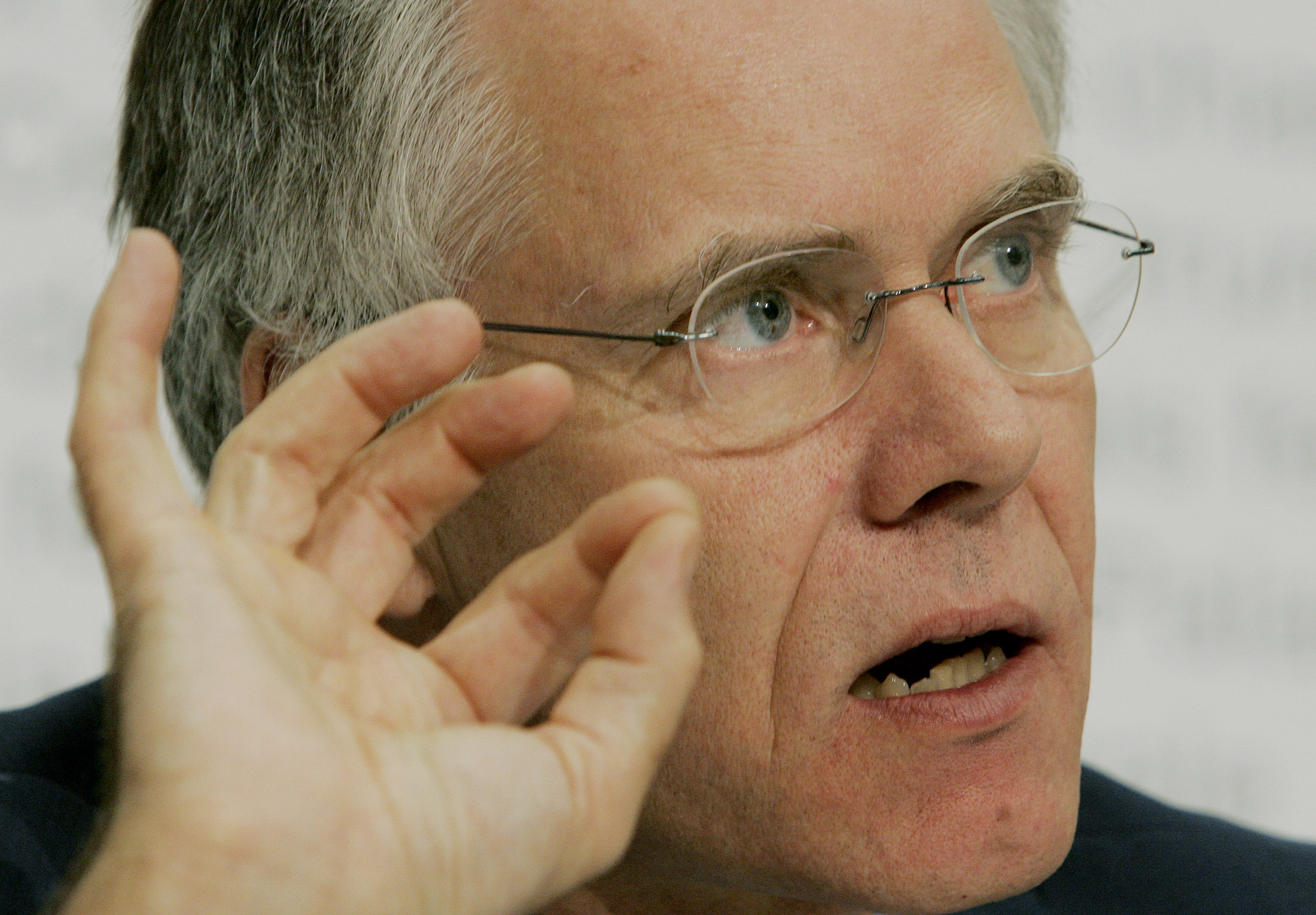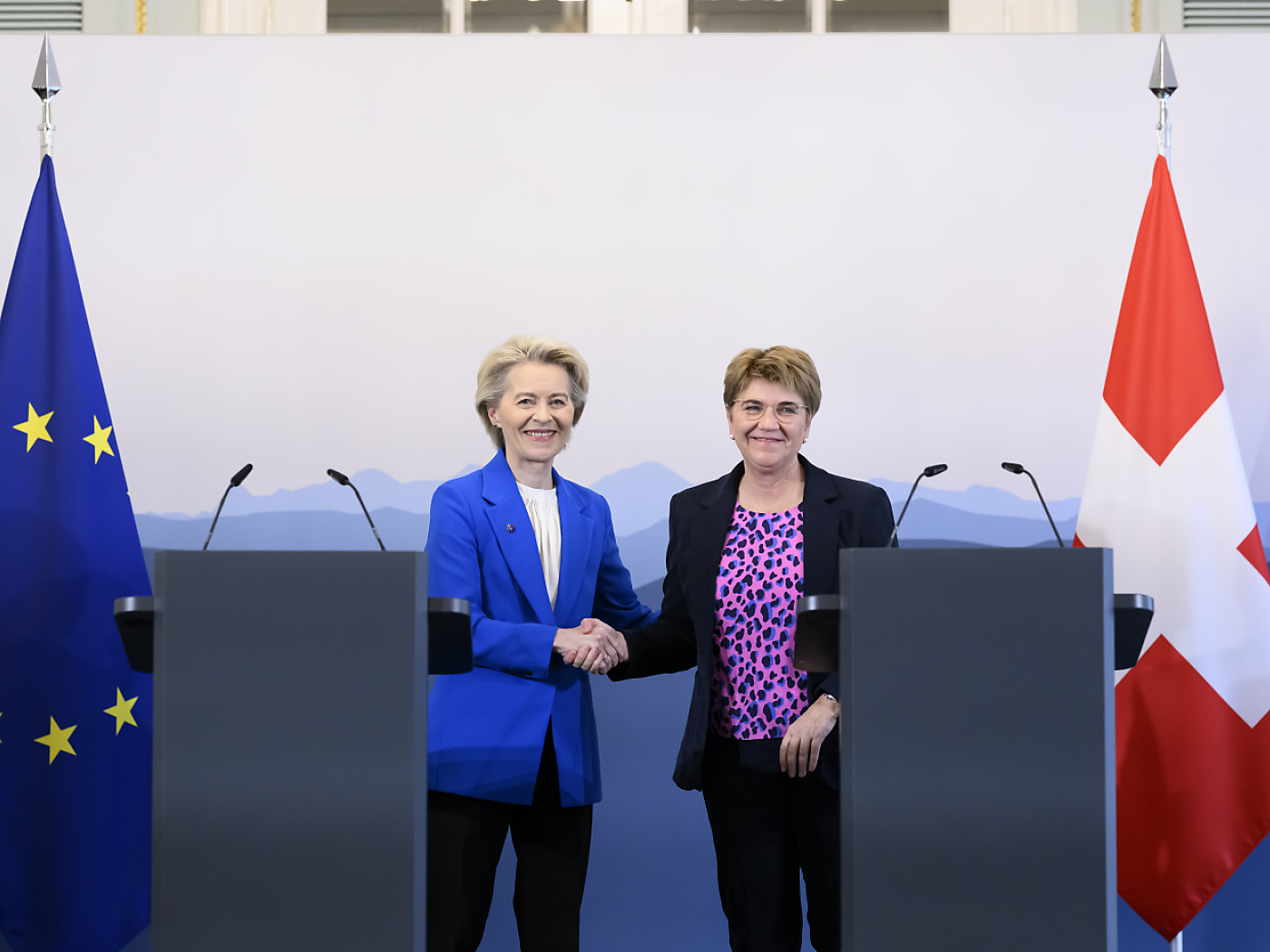Former minister recalls national traumas

It is ten years since the terrorist attack on New York’s Twin Towers shocked the world. For the Swiss it was the first disaster in what was to be a traumatic autumn.
Moritz Leuenberger, who held the post of Swiss president that year, tells swissinfo.ch about the role he was called upon to play, both as president and as a politician trying to deal with the inherent risks of modern society.
As president it fell to him to give voice to the emotions of the whole population, and to find words of comfort in the face not only of the attacks in the US, but also of a catastrophic fire in the Gotthard tunnel, a shooting spree at the Zug cantonal parliament and other disasters.
swissinfo.ch: As Swiss president how did you react to the series of tragic events?
Moritz Leuenberger: It was a great challenge for me as president, but one I wanted to accept.
Each disaster separately, not to mention the accumulation of all the events, left many people feeling speechless and helpless.
Even in a direct democracy like Switzerland, the federal president is expected to be a symbolic presence able to put into words what people are feeling.
swissinfo.ch: So you had to act like a consoling father figure?
M.L.: It might sound paternalistic, but that’s how it is. People have strong emotions, but they can’t put them into words and would like someone to do it for them. And that’s where the symbolic figure comes in.
swissinfo.ch: Did you think at the time that it just couldn’t be happening?
M.L.: The pictures from New York really did make you wonder. They looked like science fiction. And then as the sheer number of events built up I was led to asking publicly: “Will this never stop?”
Some of the media chalked this up against me as unprofessional , but a lot of people were thinking exactly the same thing and were glad that I said it.
swissinfo.ch: Of the many terrible events, did any one of them hit you particularly hard?
M.L.: The attack in Zug was the one I personally felt most. I was at the scene when there was still blood all over the ground.
The corpses were lying close by. Some of them were members of parliament whom I knew. It was an attack on our parliamentary direct democracy.
swissinfo.ch: The deaths in Zug hit you more than the thousands of dead in the US?
M.L.: I think that is a very human reaction. A disaster very close to you involving people you know hits you harder than a disaster across the ocean.
To say that doesn’t detract from what happened to our friends in the US.
swissinfo.ch: What about the grounding of Swissair? No one was hurt, but it was a traumatic event for the Swiss.
M.L.: That’s true, but it bothers me when the Swissair grounding is placed in the same category as the human disasters in retrospectives about the autumn of 2001.
The Swissair story was quite different. And I took a much more detached approach. I was of the opinion that the state shouldn’t provide Swissair with financial backing. But when the grounding happened, I changed my mind.
I realised then how much the failure of Swissair had cost in jobs, including in other companies which supplied Swissair. Sometimes it’s only when something actually happens that your eyes are opened and your ideological ideas take a battering.
swissinfo.ch: Then there was the fire in the Gotthard tunnel and the plane crash in Bassersdorf. Both of these were part of your brief as minister [of transport]. What went through your head then?
M.L.: In the case of the Gotthard it was a risk we had accepted and still do.
We need to say this quite bluntly. The consequences of such an accident had been tested over and over again. The rescue team dealt with it in a very professional way, because they were prepared for it.
A plane crash like the Crossair one is also one of the risks inherent in our mobility. Mistakes were made there, even if the court pronounced acquittals. It is not for me to judge that, but there are still questions about the choice of pilot.
swissinfo.ch: You had to deliver many funeral speeches at that time. How hard was it to find the right words?
M.L.: Such words have to be prepared professionally. You can’t just say the first thing that occurs to you, however strongly you feel.
When I was travelling to Zug after the attack, for example, I phoned a personal friend, who is a psychiatrist, and discussed it with him. Shock and sympathy alone are not enough.
swissinfo.ch: This year alone we’ve had the tsunami and Fukushima in Japan, political uprisings with countless dead in North Africa, famine in Africa. Lots of people simply don’t want to listen to the news any more, or they simply block out these events. Can you understand this?
M.L.: I think you must distinguish between people who see things from their angle as potential victims, and people with political responsibilities.
If you want to live happily, you can’t always be thinking about disasters or you will become neurotic. I understand if people are upset at the moment of a disaster, but are later able to distance themselves from it again.
But if you have political responsibilities, it’s different. Politicians must not block out risks, but take systematic steps to deal with them.
Born in 1946 and trained as a lawyer.
Joined the Social Democratic Party in 1969.
First elected to the House of Representatives in 1979.
Elected to the cabinet in 1995, where he headed the ministry of the transport, environment, energy and communication.
Held the annually rotating Swiss presidency in 2001 and 2006.
Stepped down from the cabinet in 2010.
11.9.: In the US three planes are used in suicide attacks in New York and Washington, and a fourth is forced to crash. About 3,000 people die.
27.9.: A gunman shoots 14 people in the Zug cantonal parliament, before killing himself. Many other people are injured.
2.10.: Planes of the national carrier Swissair are grounded all over the world because of the company’s insolvency.
24.10.: Two trucks crash into each other in the Gotthard road tunnel, starting a fire in which 11 people die.
24.11.: A Crossair plane travelling from Berlin to Zurich crashes near the village of Bassersdorf just before it is due to land, killing 24 of the 33 passengers and crew.
(Adapted from German by Julia Slater)

In compliance with the JTI standards
More: SWI swissinfo.ch certified by the Journalism Trust Initiative















You can find an overview of ongoing debates with our journalists here . Please join us!
If you want to start a conversation about a topic raised in this article or want to report factual errors, email us at english@swissinfo.ch.